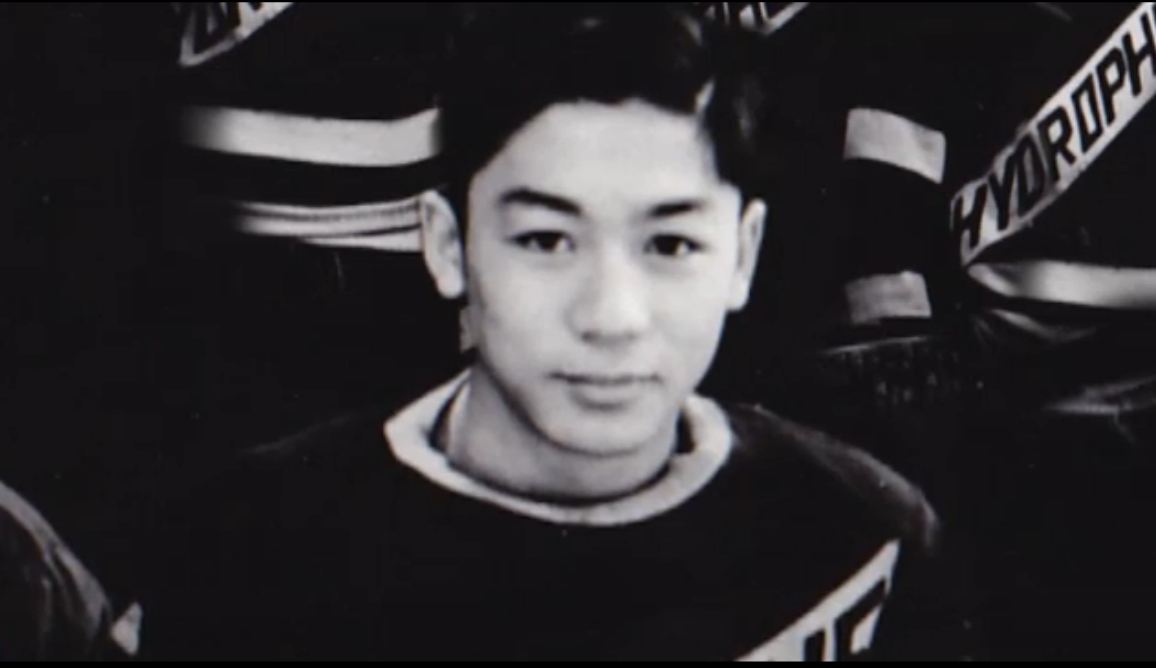
Seventy years after making history, the first player to break the color barrier in the NHL has died aged 94.
Larry Kwong, who was Chinese-Canadian, was a pioneer in the sport despite his brief appearance for the New York Rangers lasting just one minute in the 1947-48 season.
The moment came in the final shift of the third period, in a game against the Montreal Canadiens. The 24-year-old, nicknamed "King Kwong," was called up from his minor league team the New York Rovers, having been the leading scorer in the division.
An article in The Calgary Herald from March 1948 read: "Kwong, 24-year-old right winger who during his two seasons with the Rovers has drawn a wide following among New York Chinese, will make his N.H.L. debut in Montreal tonight against the Canadiens."
It continued: "Along with [Ronnie] Rowe, Kwong is expected to strengthen the Ranger lineup which has been best by injuries."
In an interview with the New York Times in 2013, Kwong reflected on his trailblazing work that led to non-white players breaking through into the NHL.
"I broke the ice a little bit," he said. "Maybe being the first Chinese player in the N.H.L gave more of a chance for other Chinese boys that play hockey."
Kwong began playing hockey in Vernon, a town in the Okanagan Valley of British Columbia, after the gold mines had drawn his father to Canada from China in the 1880s. But the family ended up turning to farming and then opening a grocery story. Kwong started competing on frozen ponds before joining the Vernon Hydrophopnes
In the same year Kwong was born, a Chinese Immigration Act was imposed that denied Chinese-Canadians the chance to vote, along with other basic civil rights.
"We were discriminated against in my own hometown," Kwong told the Times. "I couldn't get a job. The barber wouldn't cut my hair because I was Chinese."
It was during his time in the army during World War II that Kwong was recognized for his hockey skills, playing with the other troops as a form of entertainment. He was spotted by a Rangers scout and was assigned to the Rovers in the Eastern League—who played at Madison Square Garden.
Two years later, his call-up to the Rangers came. "When I had a chance to become a Ranger, I was really exited," he said. "I was looking forward to it. I said to myself: 'That's what I wanted to be since I was a young boy. I wanted to play in the N.H.L.'"
Rowe was given the full opportunity but Kwong was not. He was only granted a minute on the ice and then was not included in the team the following night, while Rowe was.
But that moment, that minute, was significant for Kwong and the NHL. Kwong's jersey now hangs in the Hockey Hall of Fame.
Kwong ended up becoming one of the leading players in the Quebec senior professional league and went on to play in England and Switzerland, becoming a coach.
Well into his 90s Kwong went to the gym three times a week, despite losing both his legs due to poor circulation. He died in Calgary on March 15.
Uncommon Knowledge
Newsweek is committed to challenging conventional wisdom and finding connections in the search for common ground.
Newsweek is committed to challenging conventional wisdom and finding connections in the search for common ground.
About the writer
To read how Newsweek uses AI as a newsroom tool, Click here.








